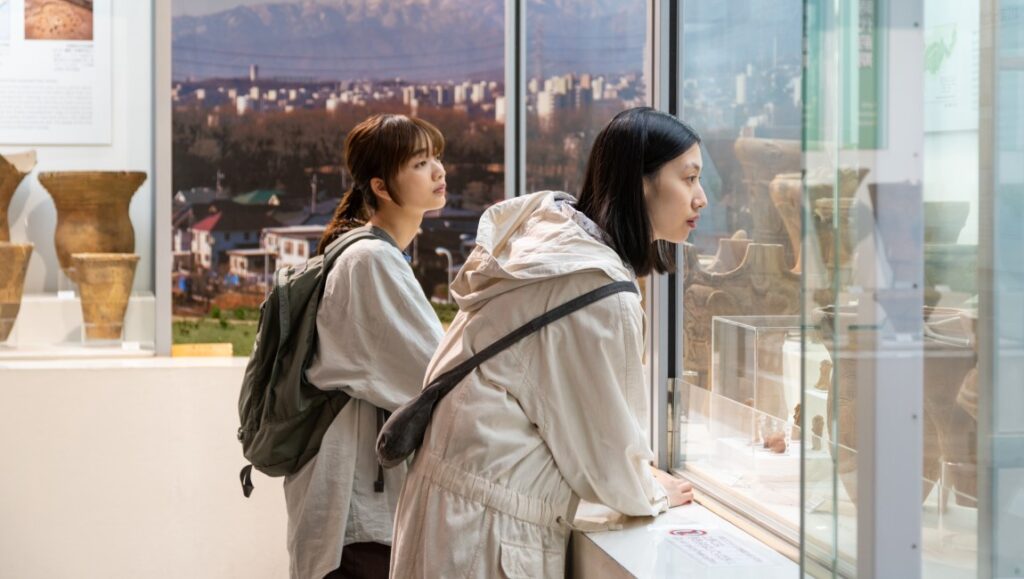Director Kiohara Yui’s last feature, Our House — which debuted in 2017, and which this writer briefly reviewed here at InRO when it played the New Directors/New Films Festival in 2018 — was a kind of a mellow haunted house film that interwove the lives of different women who happened to occupy the same space, though at different times (or in the same time but in different dimensions — it’s ambiguous). Her long-awaited follow-up similarly charts the lives of not-quite-interconnected women sharing the same space, though this time, her world has expanded from a single home to encompass an entire neighborhood. Three women go about their business over the course of a single day in a Tokyo suburb called Tama New Town: the oldest is unemployed, and after finding an old postcard from a friend, decides to go visit her despite having trouble finding her place; the middle is a gas meter reader who helps find a lost elderly man and return him to his home; the youngest is a college student who hangs out with a friend as they visit a museum and commemorate the anniversary of the death of a friend.
Kiohara herself grew up in Tama, and in her Director’s Statement notes the importance of its manufactured environment: “At a glance, there is an artificial uniformity to the city’s scenery that lends it the impression of a manufactured movie set. Apartment blocks and parks seem to extend infinitely, with no way out of the surroundings in sight.” Indeed, the town’s housing complexes, enmeshed in rolling hills and parks and winding roads, form a kind of labyrinth, one that doesn’t so much trap the women as lead to seemingly infinite avenues of discovery. It’s a bright, sunny summer day, one that makes even the oddest or saddest moments feel warm and inviting. An unusual score punctuates it all: odd percussive beats and single notes plucked on a guitar or struck on a keyboard, accompanied by electronic bleeps and bloops contrast fruitfully with the natural environments we see. It all looks like a beautiful park: trees and lush green grass, the constant hum of insects and chirping birds. But in fact, it’s all a creation — a manufactured world.
While superficially similar to the 2023 Berlinale’s There is a Stone, in that both films feature not much in the way of plotting or genre familiarity, but rather focus on people hanging out in and walking through a (more or less) natural space, the experience of watching Remembering Every Night is totally different. There is a Stone is defined by the elements it leaves out, the dangers alluded to but which never come to pass, leaving us to resolve in a space somewhere between dread and relief. Remembering Every Night, however, is exactly itself: a walk through a neighborhood, inviting us to peek in on a variety of small comedies and dramas along the way. Like a slow-motion, mostly non-verbal Richard Linklater’s Slacker, we get a portrait of a community. Like Sylvia Chang’s 20 30 40, we see women navigating the world at different stages of their lives. Maybe they’re all the same woman. Except, of course, they aren’t: but it’s the kind of thing you could imagine would make sense while you’re sitting under a shade tree on a warm afternoon as you drift off to sleep while the birds sing.
DIRECTOR: Yui Kiyohara; CAST: Kumi Hyôdô, Minami Ohba, Ai Mikami, Tadashi Okuno; DISTRIBUTOR: KimStim; IN THEATERS: September 15; RUNTIME: 1 hr. 56 min.
Originally published as part of InRO Weekly — Volume 1, Issue 8.5.


Comments are closed.